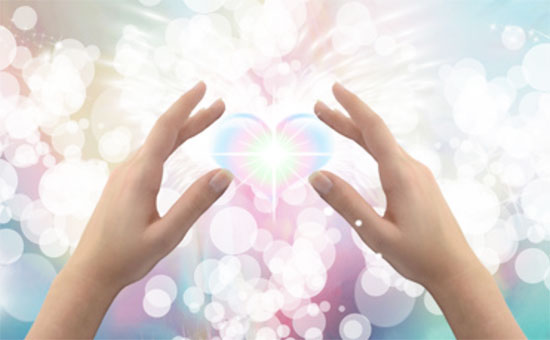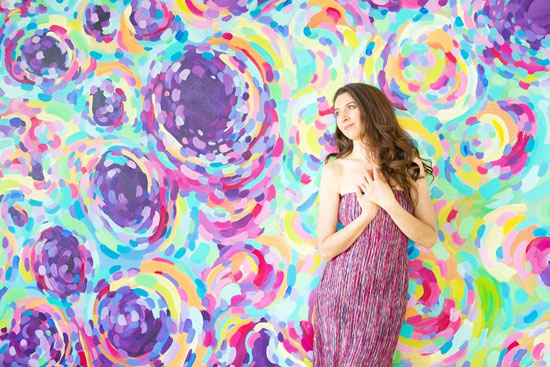Sacred medicine: 21 things about healing they didn’t teach me in medical school
By Lissa Rankin
After seven years of research, I’m finally writing my long-awaited book Sacred Medicine, the third book in the trilogy, following up Mind Over Medicine and The Fear Cure.

I will share with you 21 things I’ve learned during this journey, which I’m unpacking slowly.
1. Illness, injury, and trauma are an opportunity for awakening for those who are willing to approach their suffering as a gateway to transformation. Healing, transformation, trauma clearing, and spiritual awakening are entangled phenomena that cannot be separated, even though medicine, psychology, spirituality, and science would all like you to believe they can be.
This integrated way of approaching a healing journey as a spiritual path is not for everyone, and that’s okay. Some people will continue to compartmentalize these disciplines, opening to science and medicine, for example, but choosing to keep psychology and spirituality out of their process.
This is every individual’s right, to choose how you approach your own treatment. You cannot impose this way of healing on anyone else, but if you’re in need of healing, or if you’re in the healing arts, and if you’re willing to go down this rabbit hole, consider it an invitation to a deeper, richer, more meaningful, Whole Health life.
2. The body is naturally equipped to heal itself, but chronic stress responses in the nervous system impair these self-healing mechanisms, causing our bodies to break down. These powerful stress responses, which bolster survival in a real emergency but which destroy the body if firing chronically, override the body’s ability to repair what breaks, allowing diseases like cancer, which would otherwise get cleared naturally, to take hold and flourish.
3. Every aspect of your life (your relationships, your work, your creativity, your amorous life, your spirituality, your finances, your environment, your food, how you move your body, etc.) has the opportunity to be either poison or medicine.
As I explain in great detail in Mind Over Medicine, Whole Health requires lifestyle modifications that transform what might be poison into what can be medicine.
For example, your work can be poisonous to your health, or your work can be medicine as you fulfill your calling in a way that helps you heal. When we live authentically from the “juice” of our Inner Pilot Lights, our relationships, our work, our spirituality, our creativity, our amorous life, our relationship to money, our mental and physical health behaviors all convert what is potentially toxic into what is healing.
4. Trauma is at the root of many illnesses. Some people have experienced the Big T traumas, the ones researchers call the Adverse Childhood Experiences (ACEs). But 100% of us have experienced what might seem like smaller traumas, such as the developmental traumas that interfere with our healthy individuation, capacity for intimacy, and natural full expression of our authentic selves.
Such trauma, which Buddhist psychiatrist Mark Epstein, MD calls “the trauma of everyday life,” affects every one of us and impacts our health. Talk therapy is not enough to heal these wounds. Healing requires not just talking about traumatic events in our lives; it requires clearing those traumas from our energy systems (researchers like Shamini Jain, PhD call it “the biofield”), so life force can flow freely. This natural flow of life force can sometimes cure disease and prevent future disease or disability.
5. Nutrition as medicine, exercise, getting enough sleep, and functional medicine approaches to health are essential building blocks of Whole Health, but they’re insufficient for optimal health outcomes. You can eat the world’s most pristine diet, work out every day, sleep nine hours per night, take 100 supplements, and get the best conventional medical treatment or functional/integrative medicine treatment in the world, but if there’s untreated trauma in your system, you’re unlikely to be permanently cured from a chronic or life-threatening illness.
6. Many people who say they want to be cured unconsciously sabotage their healing. While their conscious minds genuinely want to stop suffering, parts of the unconscious mind does not want the illness to go away, and those unconscious parts interfere with healing. It’s like putting one foot on the gas and one foot on the brakes. Parts of you want to be cured and other parts of you, parts that think they’re protecting you, don’t want you to get well.
For example, if you’re sick and getting a big fat disability check from a job you used to hate, some parts will want to keep the disability check and avoid going back to the soul-sucking job. Clearing these unconscious blocks is a necessary part of the healing process.
7. You know what’s best for your body far better than any expert does. Expertise is awesome. We need our experts to offer what they offer in their respective medicine bags. But someone else’s expertise does not make them the expert of how your healing journey should go. If you tune into your Inner Pilot Light, you’ll be guided to what will help you heal.

8. Love heals. It’s a paradox. You can heal yourself; and you can’t do it alone. While the body is equipped to heal itself, most of us can’t do what healing asks of us in isolation. Even introverts like myself need safe, nurturing, non-judgmental, loving healers and a community of healing to hold us while we heal ourselves and each other.
9. Circles are powerful. As Michael Lerner of Commonweal said, “If it touches the heart, if it helps guide us on our path, it’s a Healing Circle.” Circles eliminate pedestals. Circles have been used by indigenous people as a vehicle of healing for millennia. The very same people gathered together with the intention of healing have less impact when they’re sitting in rows or when one person is up on stage.
10. Life force can be transfused when yours is weakened. Call it life force, call it chi, call it prana, call it energy, call it love or God or Shakti or the Holy Spirit.
What you call it doesn’t matter. All of us have times in life when our life force wanes, and we need that life force to flow freely in order to be optimally healthy. While all living beings have life force flowing through them, when yours gets weak, you may need someone else whose life force is flowing with less impediment to boost yours until your own life force can move through you unimpeded.
11. When you let life force flow through you so you can help heal others, you receive a healing yourself. When you become a channel for life force flowing through you, that which flows through you heals you as it moves in you. If you’re dialed into the Source of all life force, then this life force is infinite and unlimited and restorative. If you’re depleted after offering healing, you’re giving up your own life force rather than opening to the unlimited flow of life force that’s available to us all, and this can make you sick. But if you’re channeling the Source of all life force, you receive a healing through the act of healing.
12. Optimal health requires the generation of your own life force. Although we can receive transfusions of life force from others and this may help us feel better temporarily, most of these kinds of transfusions aren’t permanent unless you heal and clear traumatic imprints or blocks in your own system so you can open to the flow of life force on your own, through your own connection to Source.
13. Music, art, dancing, safe touch, emotional vulnerability, setting the intention for healing, prayer, and meditation all bond groups into powerful forces of healing. When these elements of group bonding come together, they seem to amplify the impact of each one, making each exponentially more powerful.
14. The more bonded the group, the more powerful it can be as a force for healing. Group bonding can arise as the result of singing and dancing together, undergoing initiatory rituals together, surviving a trauma together, healing trauma together, creating art together, experiencing strong emotions like love or ecstasy or grief or rage together, feeling safe to be emotionally and expressively authentic in a shared space, and engaging in spiritual practices together.
15. If groups are strongly bonded, one person’s cure may increase the likelihood that another bonded group member is also cured. This concept of “resonant bonding” is currently being studied by researcher William Bengston, PhD, who theorizes that this may offer part of the explanation for the mystery of the placebo effect. In other words, if participants in a research study are in some way bonded, those who are cured by the treatment may lead to cures experienced by the control (placebo) group who do not get the treatment. The mechanism of action of how this works is still unknown, but Bill Bengston is decided on unraveling this mystery.
16. If groups are equally bonded, size seems to matter. The larger the group, the more powerful the healing effect seems to be. If a larger group means less bonding, however, this does not seem to be the case. The strength of the bonding appears to matter more than the size of the group, but if both groups are equally bonded, a larger group seems to result in more healing impact. This may explain why healing happen at sacred sites like Lourdes.

17. What many people call “energy healing” may actually be the transmission of healing “information” riding on a wave of energy. This would explain why healing seems to work remotely and does not diminish across distance in the way we would expect energy to dissipate at a distance and be stronger when it’s close. Again, the mechanism for how this healing information seems to be transmitted is not understood by the scientists who are researching it.
Some theorize that healing information is a kind of code, almost like computer code, that can be inserted into a buggy program in the body. Some healers suggest that the energy body (of which the physical body is a part) is designed with an ideal matrix based on sacred geometries and therefore insertion of healing information is like repairing a glitch in the blueprint of a healthy body.
18. Healing requires a sanctuary. Because some aspects of healing can feel like getting cut open with a scalpel, we need to counterbalance the challenging parts of the deep work healing requires with the nurture, safety, comfort, and unconditional acceptance we all crave.
This bolsters us and gives us courage so we can do what we must to heal what is ready to be healed. Some find this kind of sanctuary in nature. Others find it in sacred spaces where groups gather, as in traditional churches, temples, and holy sites. Still others find their sanctuary inside, where they can connect to their Inner Pilot Light in silent meditation and experience a deep peace and sense of wholeness, which is always within us, even when we feel broken.
19. Pleasure, play, and laughter are good medicine. Healing work can be painful, as we face everything we have compartmentalized into trauma bubbles we typically don’t touch. As we gently and patiently penetrate these bubbles so healing can happen, we need to counterbalance the discomfort with play, pleasure, laughter, and deep nurturing experiences.
As your tolerance for pain increases, your tolerance for pleasure needs to increase just as much. Many people have unconscious blocks against feeling good and receiving deliciously pleasurable experiences. Feeling the pain of being human needs to be counterbalanced with feeling all the pleasures of all the senses that only creatures with human bodies can experience. Otherwise, healing can quickly devolve into masochism- which, of course, is not healing.
20. Healing is an interdisciplinary process. You can’t heal psychologically without having it impact the health of your body. You can’t heal medically without having it impact your psychological and spiritual well-being. You can’t heal spiritually without having it affect you psychologically and medically.
Medicine, psychology, spirituality, and science are all linked and cannot be peeled apart, even by those who try to separate them. As much as we’d like to believe we can divide these categories into different academic disciplines that belong in different departments of universities, healing fails to play by such rules.
All psychological healing leads to spiritual awakening and better physical health. All spiritual awakenings impact the psyche and the body. All “spontaneous remissions” impact you psychologically and spiritually (just ask people like Anita Moorjani or Eben Alexander).
All biofield science that researches healing leads you down a rabbit hole that leads to quantum physics that leads to the science of consciousness, which leads to psychological, spiritual, and medical breakthroughs. Healing does not behave according to the principles of the Cartesian mind/body/spirit split. The etymology of the word “healing” comes from the Proto-Germanic word “khailaz,” which translates as “to make whole.” Healing is, almost by definition, a unifying phenomena that restores the academic splits into a reunion of integration.
21. Healing should be a right, not a privilege, but we’re not there yet. Healing should not be a luxury good, only available for people who can afford to hire energy healers, trauma therapists, or shamans who don’t accept insurance. You shouldn’t have to pay thousands of dollars to attend healing retreats or fly across the world to see a healer in some far away country.
But our culture has not yet caught up with the reality that anyone who is ready, willing, and courageous enough to embark upon a journey of healing should be able to access it. Right now, healing is a luxury that the people who need it the most cannot afford. We need a public health/ community health model that makes healing affordable for anyone willing to do the hard work of journeying through illness, injury, or trauma as a transformational spiritual path.
Along with some of the healers I’ve researched for my Sacred Medicine book, I am actively engaged in a pilot program to try to address this need for a public health solution, but we’re not ready to scale it yet.
yogaesoteric
October, 2019
